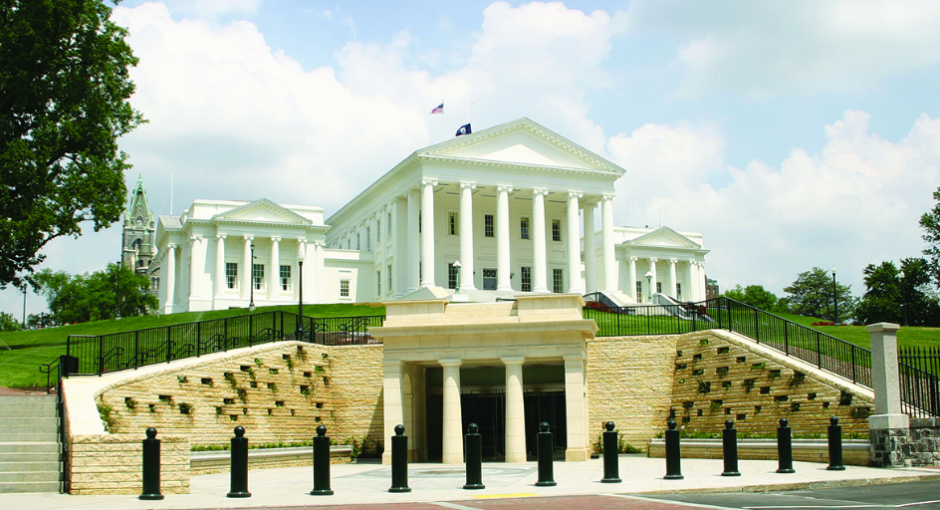The Virginia General Assembly has passed legislation to stop insurers and their pharmacy benefit managers (PBMs) from discriminating against 340B grantee covered entities and their contract pharmacies. Hospitals would be excluded from protection.
Virginia health centers say Gov. Glenn Youngkin (R) is expected to sign the bill, H.R. 1162, which the House voted 96-3 to pass and the Senate passed unanimously, 40-0.
Across the Nation
Protecting 340B covered entities from payers and drug manufacturers’ actions has been on many states legislative agendas this year.
Laws have been enacted in at least 18 states since 2019 addressing 340B-related matters, according to community health center advocates. Most target what covered entities call insurer and PBM “pickpocketing” of their 340B program savings or addressing other 340B-related matters.
Last month Michigan Gov. Gretchen Whitmer (D) signed three bills protecting 340B grantee and hospital entities from adverse insurer or PBMs policies. Comparable bills were introduced this year in Arizona, California, Colorado, Florida, Iowa, Kentucky, Maine, Maryland, Mississippi, Missouri, Nebraska, New Hampshire, and South Dakota. Some have died but others remain under consideration.
Contract Pharmacy Restrictions Targeted
The California, Maine, Mississippi, and Missouri bills filed this year and a fifth one in Utah would prohibit drug manufacturer conditions on 340B contract pharmacy arrangements. Pharmaceutical Research and Manufacturers of America (PhRMA) has sued in federal court over the law Arkansas passed last year, the nation’s first.
The California and Missouri bills also would prevent manufacturers from providing 340B pricing as a rebate instead of as a discount.
“The reason that states are being so proactive is that Congress is not being active enough on ensuring that 340B providers can actually keep the savings that Congress intended to accrue to them, so states are taking actions into their own hands,” said Colleen Meiman, a senior policy adviser to state and regional primary care associations.
“We appreciate that state legislators are shining a light on one area of concern for 340B covered entities, but state laws have no place in regulating a federal program authorized by a federal law passed by Congress,” said PhRMA spokesperson Nicole Longo.
Some state bills under consideration would “pull the states into a live federal dispute and active litigation in several federal courts across the country, Longo said, while others fail to address “fundamental problems” in the 340B program. “That’s why we will continue to pursue policies at the federal level that would ensure patients more directly benefit from the tens of billions of dollars in discounts manufacturers provide through 340B.”
Virginia Bill’s Provisions
The bill that Virginia lawmakers sent to their governor would prohibit insurers and PBMs from imposing requirements, exclusions, reimbursement terms, or other conditions on a 340B grantee covered entity or contract pharmacy that differ from those applied to providers or pharmacies that do not participate in 340B.
The prohibitions would not apply to drugs with an annual estimated per-patient cost above $250,000. Also, the bill would let insurers and PBMs require pharmacies to identify claims for prescriptions filled with 340B-purchased drugs.
The bill reportedly was written to protect non-hospital entities only to avoid potential opposition and improve its odds of becoming law.
“We are happy to see Virginia take legislative action to stop PBMs from engaging in discriminatory practices on covered entities, such as federally qualified community health centers,” said David Christian, pharmacy director of Central Virginia Health Services, a community health center with about 20 locations surrounding the state capital Richmond.
“In the past, there have been contracts circulated by PBMs that have eroded 340B savings,” Christian said. “Currently, there are contracts in place that calculate reimbursement differently for 340B drugs for our in-house pharmacies. The erosion of the 340B savings through these types of contracts limit our ability to offer the services to our patients that were intended by the 340B program.”
Christian said the bill “will provide protection from decreased reimbursement built into future contracts issued by PBMs.”


